
Witness
Witnessing is the subtlest force of intervention.
Witnessing is at first something quiet and seemingly inactive, and one might think that nothing is happening. But when suddenly there is real deep listening and presence in the room, it changes the field of communication and togetherness. The effect is subtle and can be very powerful.
Thomas Huebl
Through my study and group experiments in healing collective trauma, I’ve watched myself and others increase our capacity to hold some of the collective harm that lives on in our bodies and repeats in harmful ways in our personal lives and on the world stage. It is the most hopeful work I know of because it goes to the heart of what ails us and what is beginning to shift.
To bear witness is not necessarily about travel. I can and do bear witness at home in my own community. For me, it is a spiritual practice—a deeper way of taking into the body and the spirit, both the joys and the sorrows of the people around me—as well as our greater than human kin and the Earth, this circle of life we are all part of.
Bearing witness puts me in touch with the lived experience of my sisters and brothers whose path, culture, and history is different from my own. This practice is important in building both local and global solidarity and a commitment to the well-being of the entire human project. It invites us to engage in a greater adventure called life.
I see life as an interdependent web of relationships. A theme of my life has been crossing borders and boundaries to celebrate the richness and challenges of difference. Our cultures and traditions, part of a larger desire among us to “quilt” fragments back together that reveals something beautiful and harmonious.
Here are a few examples of my experiences as a witness. A small photo gallery follows each experience.
Palestine-Israel
During the fall of 2024, I was part of a multi-faith delegation of solidarity and accompaniment to Palestine - Israel organized by Sabeel in partnership with Rabbis for Ceasefire and Christians for Ceasefire. The level of violence in the occupied West Bank and southern Lebanon was increasing to the point where I wondered if our trip would be canceled.
Each day our schedule changed, depending on circumstances. It was a life-changing experience seeing apartheid up close along with the violence it brings. We met with both Palestinians and Israelis working to build relationships of trust. It was not about taking sides, but rather about coming back together and healing divides.

Deb leading lament in a prayer circle at the Kerem Shalom border crossing into Gaza.

Road signs with Arabic effaced.

Blood on our hands. Protest at the U.S. embassy in Jerusalem.

Separation wall.

Cooking class at Noor Weg, an organization that supports kids with disabilities in the Aida Refugee Camp in Bethlehem.

Peaceful protest with Sheikh Hassan and other interfaith leaders.
U.S./Mexico Border
I’ve been volunteering in a network of shelters known as Annunciation House in El Paso, Texas for the past five winters. Living and working side-by-side with those who left their homes behind to find safety and economic and political stability – and to be reunited with family has offered a lived experience that challenged my thinking about many things, including the history of this land.
For more information, please click here to read about my book, Borderlands: Stories from an El Paso Shelter , or click on the Book tab above.

The border wall, as seen from El Paso.
Relaunching the Poor People’s Campaign:
A National Call for Moral Revival
The five days of non-violent direct action that relaunched Martin Luther King, Jr.’s campaign under the leadership of William Barber and Liz Theoharris were formative for me. Each day was focused on one of the five evils that capture the struggles of the poor and dispossessed: systemic racism, poverty, ecological devastation, the war economy, and a distorted moral narrative.
I participated each day, spoke on the steps of Michigan’s capitol in Lansing, risked arrest three times, and was successful twice. I never realized that these actions could be choreographed to be both beautiful and impactful. I had the experience of helping our attorneys prepare for trial based on a necessity defense. The charges were dropped by the prosecutor days before our court date, “in the interest of justice.” We would have preferred to have won in court to have another win to be an example for future cases.
I learned how difficult it is to get coverage of things that trouble power dynamics from mainstream media. And how important it is to center the voice of people directly impacted by inequities.





Standing Rock, the Dakota Access Pipeline, Enbridge Lines 3 and 5
My involvement in efforts to stop crude oil pipeline construction and to decommission an aging one near my home that threatens the waters of the Great Lakes ended in disillusionment and a difficult coming to consciousness.
It was exciting to see Indigenous peoples leading the way and the shift in language from protestors to “water protectors.” Indigenous values of living in harmony in a great circle of life point the way forward.
What didn’t work for me in these struggles was the lack of connection between our oily way of life and the destabilization of the climate. The global economy hums from burning fossil fuels. But we also have to take responsibility to reduce our use of gasoline, jet fuel, natural gas, and other fossil fuels. It’s easy to blame the industry, instead of making changes in our own lives and coming together to shift cultural norms and focus on transformative change.
It’s become increasingly important to me to connect the dots to see the bigger picture that emerges. But it takes courage. It’s not a pretty sight

Standing Rock Clergy Call


Treaty People Gathering on Enbridge Line 3. Aerial view of pipeline water crossing.

Treaty People Gathering. Aerial view of chalk drawing
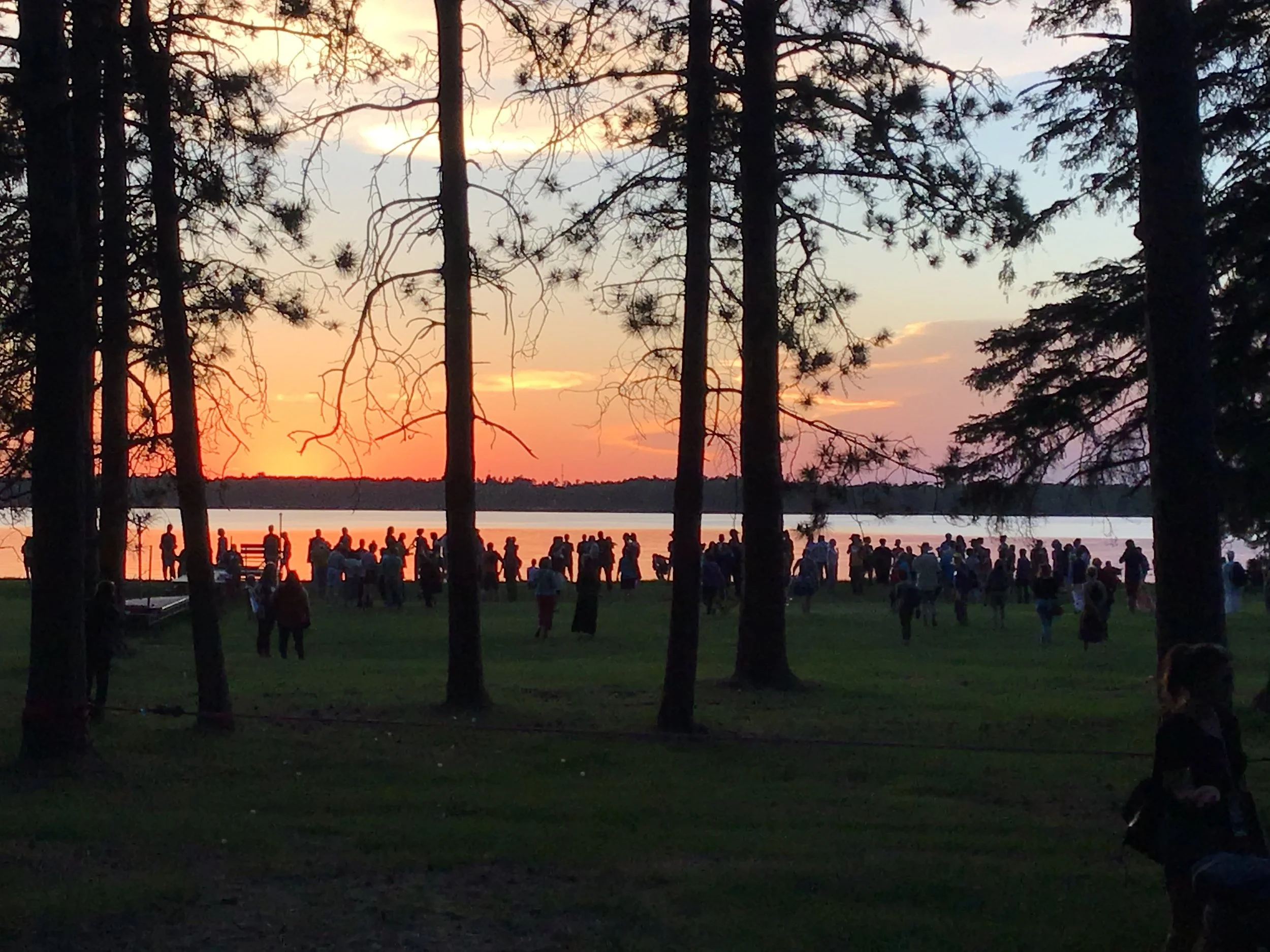
Treaty People Gathering. Multi-faith group blessing the water at sunset

Deb pouring a libation for Flint at an event in Petoskey.
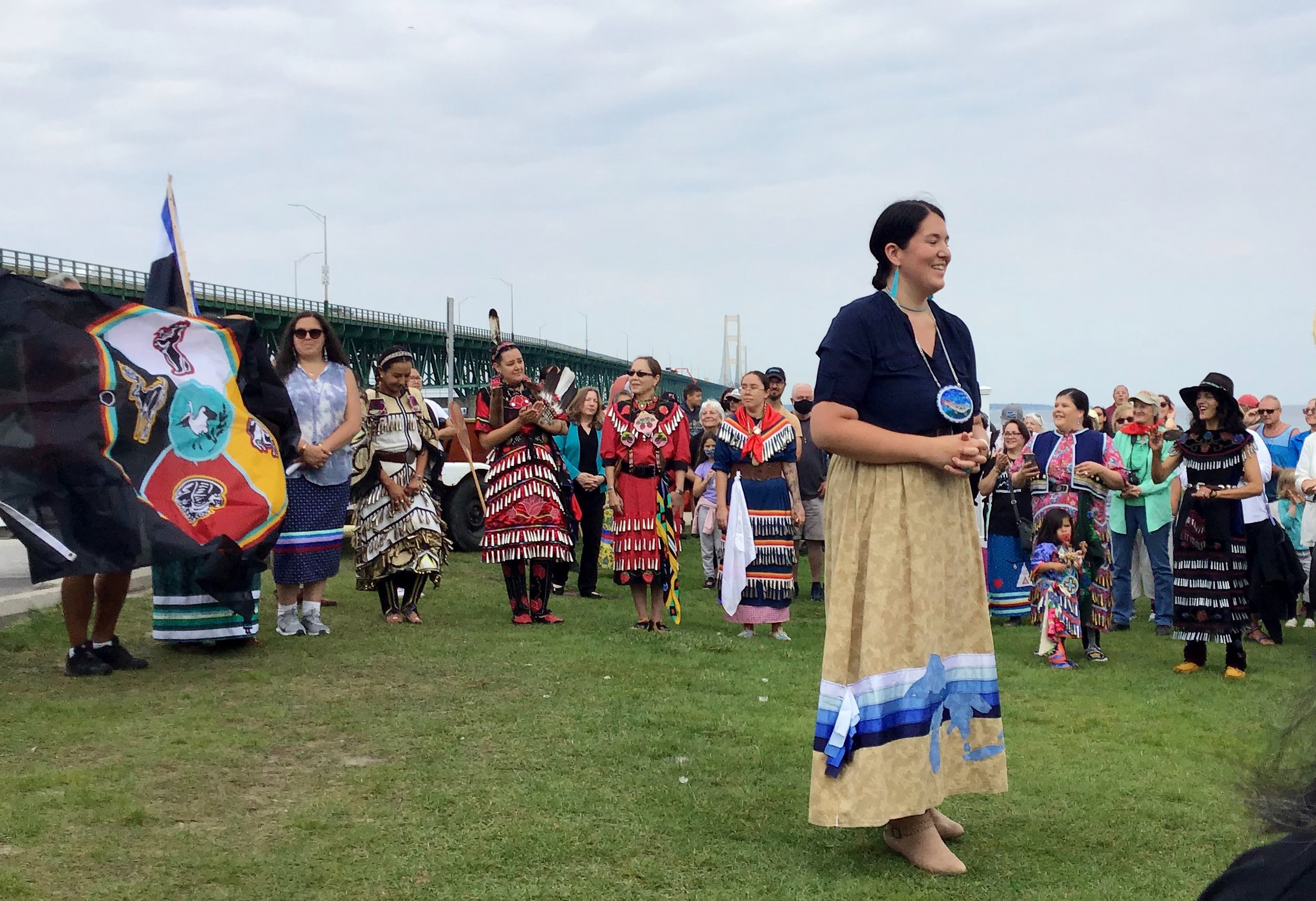
The Red Road to D.C. - Bay Mills Tribal Chair and jingle dancers
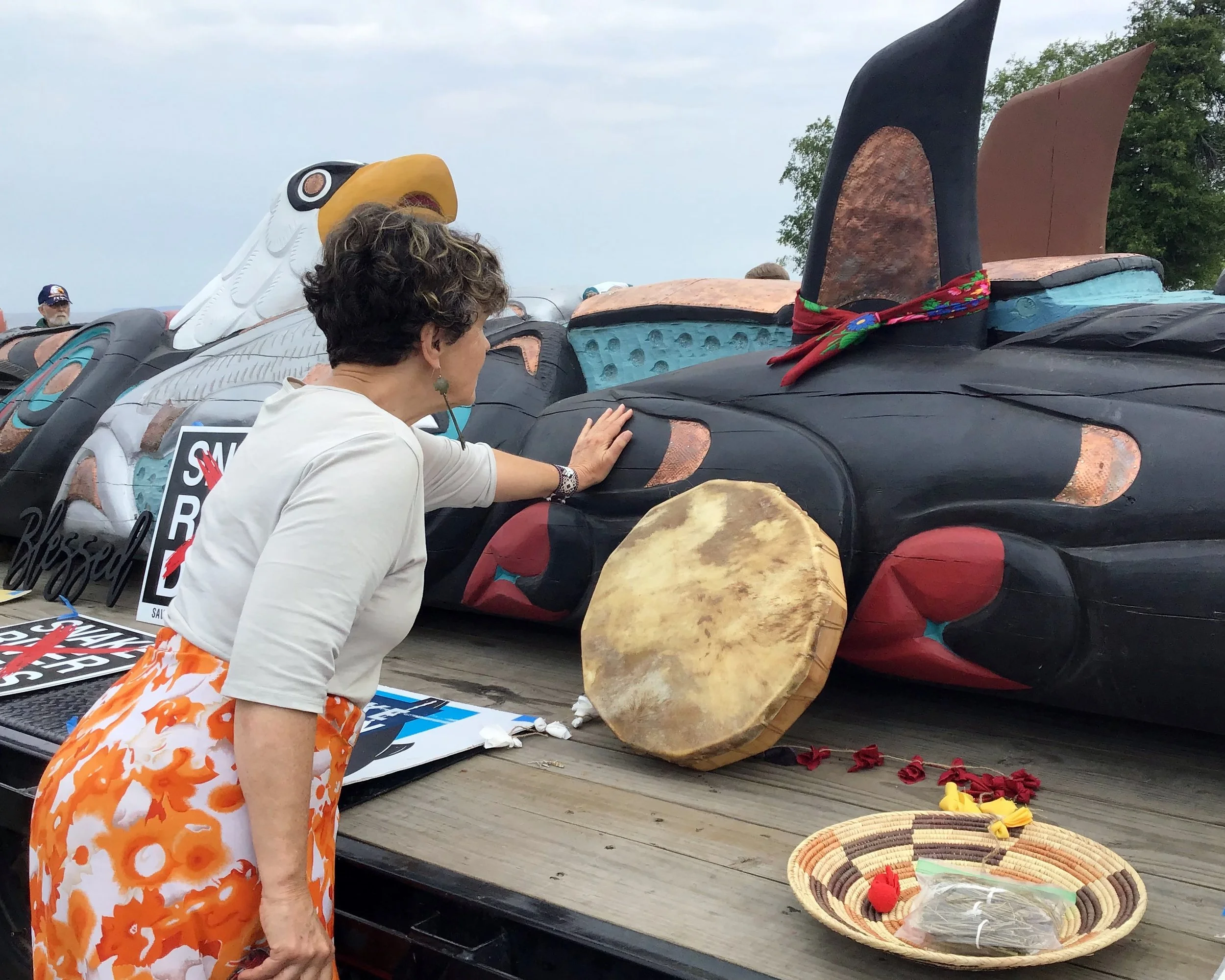
The Red Road to D.C. - Deb adds her blessing to the totem pole at the Straits of Mackinac.

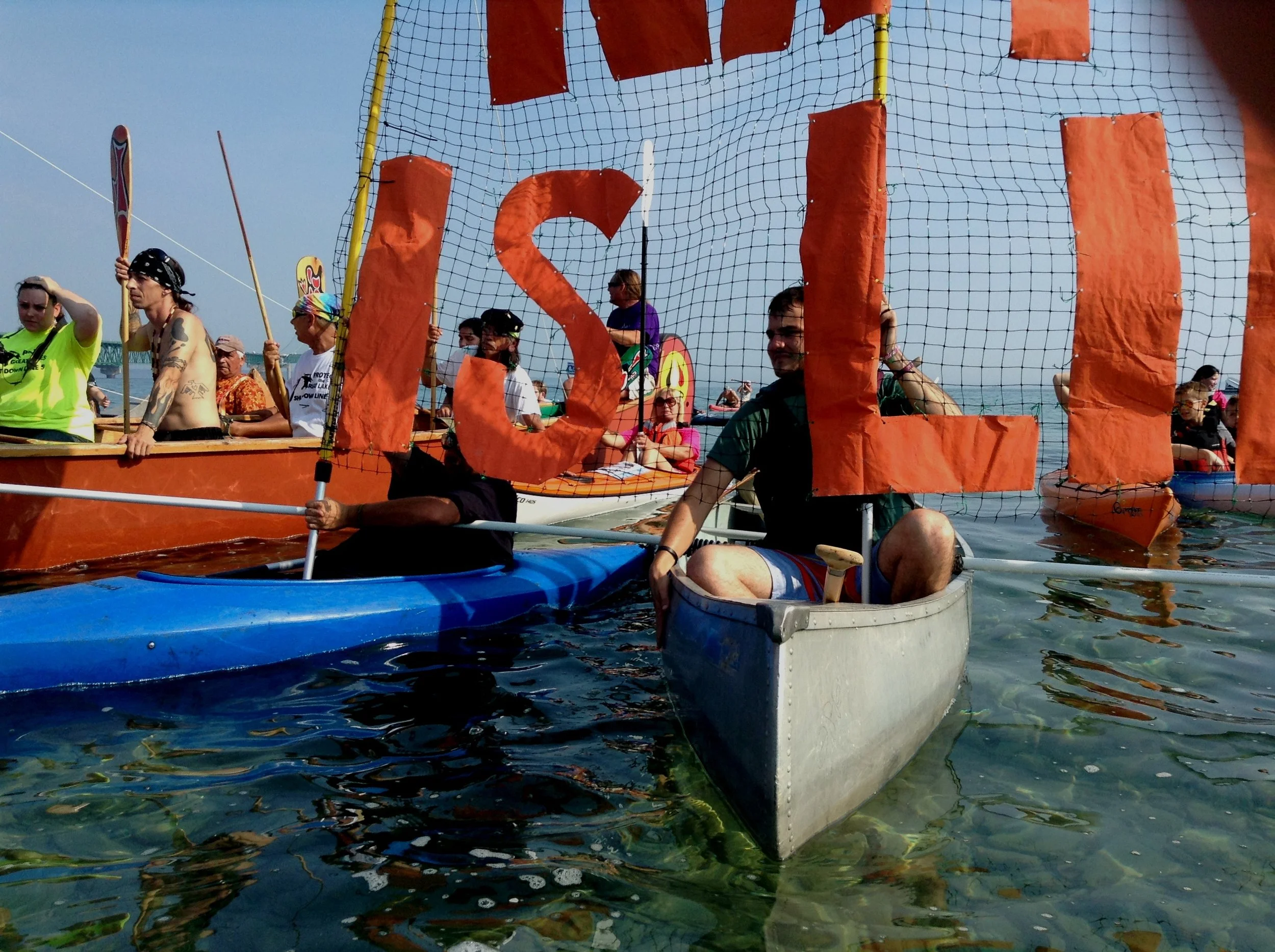
Detroit’s Sinai-Grace Hospital
I worked as a hospital chaplain for several years and loved it! Detroit is a predominantly African-American city with tremendous spirit and heart.
I wondered whether I would be trusted to accompany our patients and families during some of the most intimate moments in their lives. I learned so much from a relationship culture where people understand death and strong emotion. I have many memories of gatherings of love around the bedside.
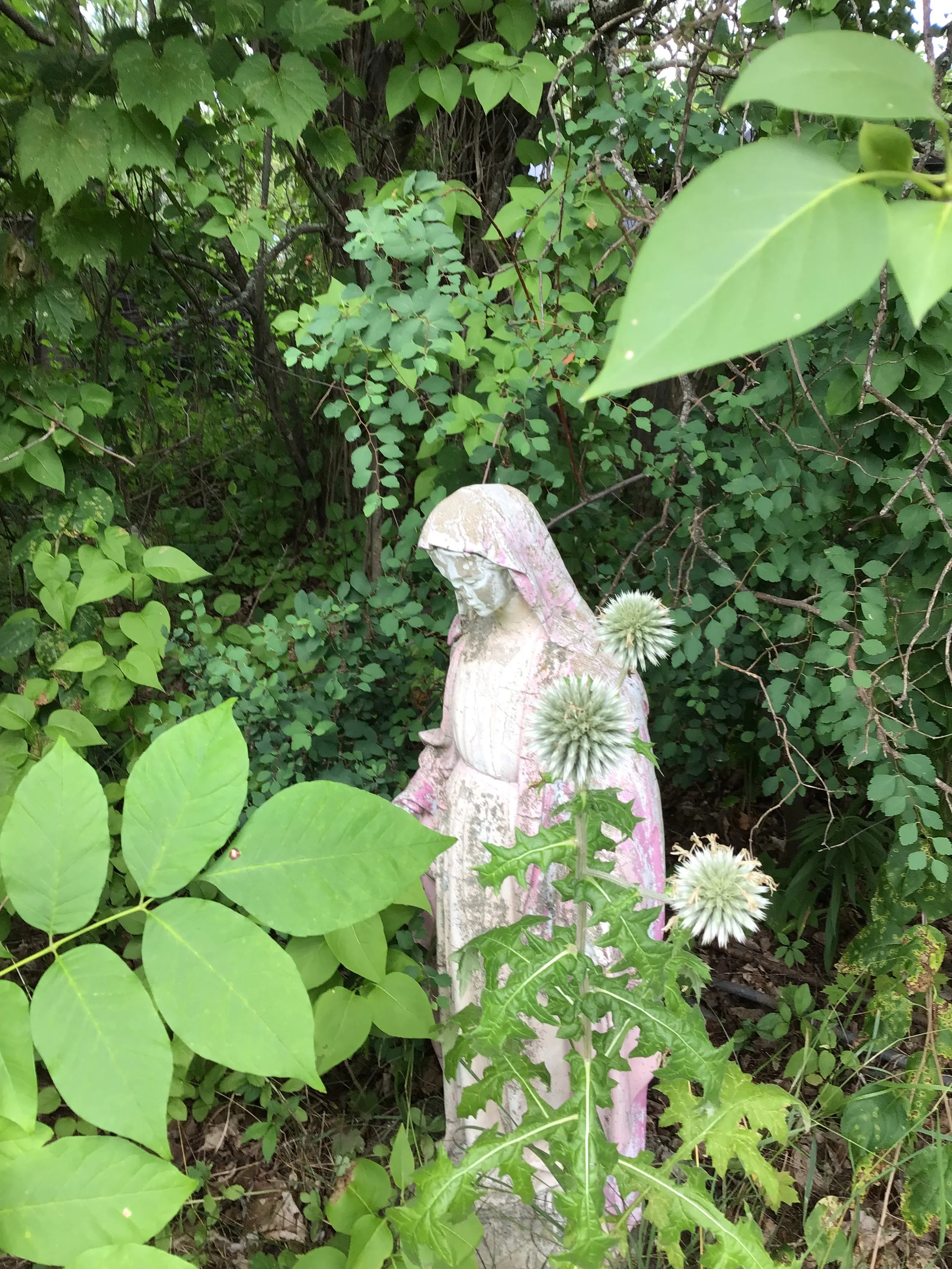
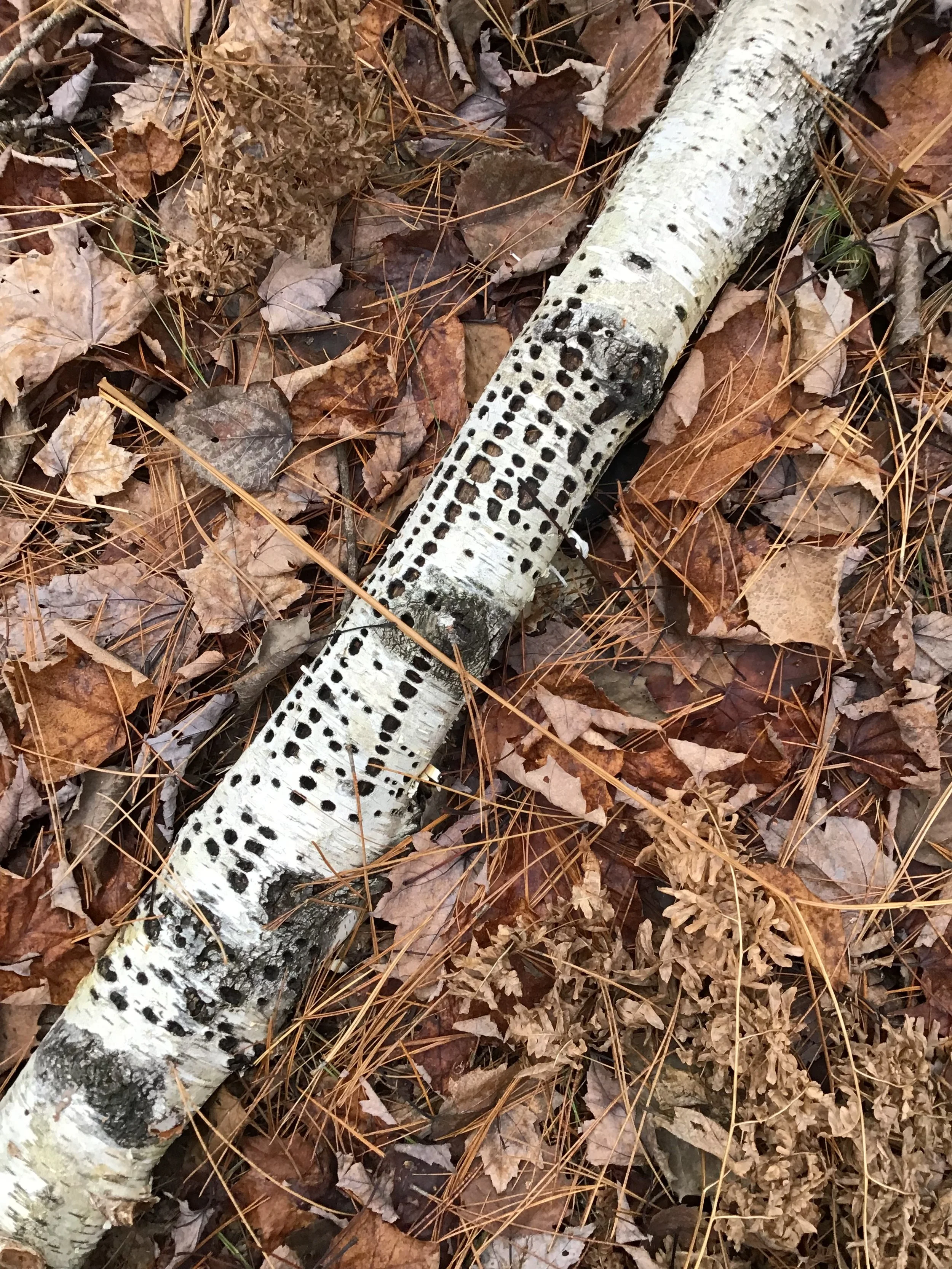
Seminary and Multi-Faith Study
I have a small life and leadership coaching practice for ten years and found my work with people drifting to deeper, more spiritual levels. It was also important to me to build community. I started looking for an interfaith spiritual direction program, so I could support people who were questioning the path they were born into.
One of my mentors suggested I look into a new seminary called The Chaplaincy Institute that had been founded by an artist who had gone through the program at the Institute for Creation Spirituality. I looked at the website and found the emphasis in multi-faith studies along with the arts and ritual fresh and exciting. But I had never considered ordination or work as a chaplain. It took a year to overcome the resistance I felt.
Once I said yes, for the first time, I had found a place where I could bring the fullness of my spirituality and steep in the major wisdom traditions of the world. The friends I’ve made on this journey have enriched and transformed my life.
I’ve found that when I find something to genuinely love in another tradition or culture, it’s affirming to everyone. It’s easy to fear those we don’t know. But once there is a relationship, everything shifts. I see the world’s great wisdom traditions and cultures as our heritage as members of the human family.
I finished my Masters in Divinity at a sister school called Starr King. After a solid grounding for my work as a hospital chaplain, I wanted to focus on justice topics, both social and ecological. I took classes at many of the schools that belonged to the Graduate Theological Union in Berkeley, California. I love being part of a learning community.
France
A semester of study in Brittany was my first experience of crossing a border. I didn’t have words to describe what I felt when I first set foot on the ground. There was something in me that relaxed with a sense that I had come “home.” At the time, I didn’t know I had any French ancestry. Like many in the U.S. my people come from a number of places – in my case, the north and northwest of Europe. After generations, I still felt the sadness of displacement, dislocation and the longing to belong to the culture and practices of my ancestors.
My people left their homes and communities behind for many of the same reasons people continue to leave: economic and political instability, war, and religious persecution. My work at the U.S./Mexico border has helped me bring the experience of those people seeking protection and stability with my own people full circle.
The Vietnam War was still raging and there was quite a bit of anger among French students for U.S. involvement and a lot of unrest in the country.
Fast forward…I never could have imagined that I would be offered a position at IBM’s European Headquarters in Paris. I got to work in a familiar English language environment and could spend weekends with French-speaking people. As a leadership development site for Europe, the Middle East, and Africa, I got to experience colleagues coming from many places. It was my first encounter with the need to increase my capacity for cultural sensitivity and cultural humility.
All of these experience have been formative. I’m grateful for all of them – and for those yet to come.
